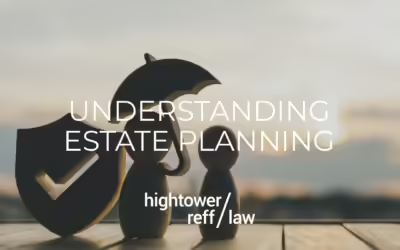“If you fail to plan, you are planning to fail.”
Benjamin Franklin’s oft-quoted adage rings all too true when considering estate planning. Topics such as drafting a will or choosing a power of attorney, which often simmer on the back burner, can quickly come to a head in times of tragedy and trouble. By failing to consider important estate planning questions in a careful, timely manner, families set themselves up for hard decisions at often inopportune and chaotic times.
The Advantages of Estate Planning
Taking the necessary steps to establish a basic estate plan when you have the time to consider all your options is beneficial for several reasons:
1. Expense.
Establishing a good estate plan now can save extraneous costs later when some estate planning tools are eliminated as an option. For example, a person can sometimes avoid the filing of a guardianship/conservatorship action in favor of a properly executed power of attorney. A Power of Attorney document is less expensive to draft and execute than the institution of a guardianship action in county court.
2. Time to Think.
One of the most important steps in developing an estate plan is taking the necessary time to consider your options. By allowing ample time to contemplate the significant decisions that estate planning requires, you afford yourself peace of mind in knowing you have a solid plan that you and your family can fall back on if necessary. Often times, I meet with families after someone has been diagnosed with a terminal illness or has already lost cognition. This can limit the options available for estate planning. In those cases, the decisions are often forced and rushed purely due to the nature of the situation. Do yourself and a favor and give yourself the gift of time – time to think and time to choose what is best for you.
3. More Options.
Having a 30,000-foot view of your current estate assets, family dynamics, insurance needs and potential tax implications allow an estate planning attorney to develop the best plan for you. The more advance planning you undertake, the more likely you are to be able to execute a plan that encompasses all your needs.
4. Family.
Estate planning is not only for the person signing on the dotted line. More often than not, the unintended beneficiary of a comprehensive estate plan is the family and loved ones who take care of the person when they are sick and distribute their assets after they are gone. By executing a basic estate plan, you allow your family to place their time and energy with you, during times when that is the most important thing. From choosing guardians for yourself and your minor children to the division of your assets, having a proper plan ensures you have a voice in all stages of the process that your family can lean on for guidance.
A basic estate plan includes a Will, Power of Attorney for Healthcare and Power of Attorney for Finance. These documents allow you to make known your wishes at the time you pass and choose the person or persons who will handle your affairs, both in the event of your incapacity and after you have died.
Estate planning is more than just assets. And it is more than just passing wealth. Estate planning is about family and making sure you are taken care of, no matter your stage in life.
This article should not be construed as legal advice. Situations are unique from one another and it is impossible to provide legal advice for every situation without knowing the individual facts.




